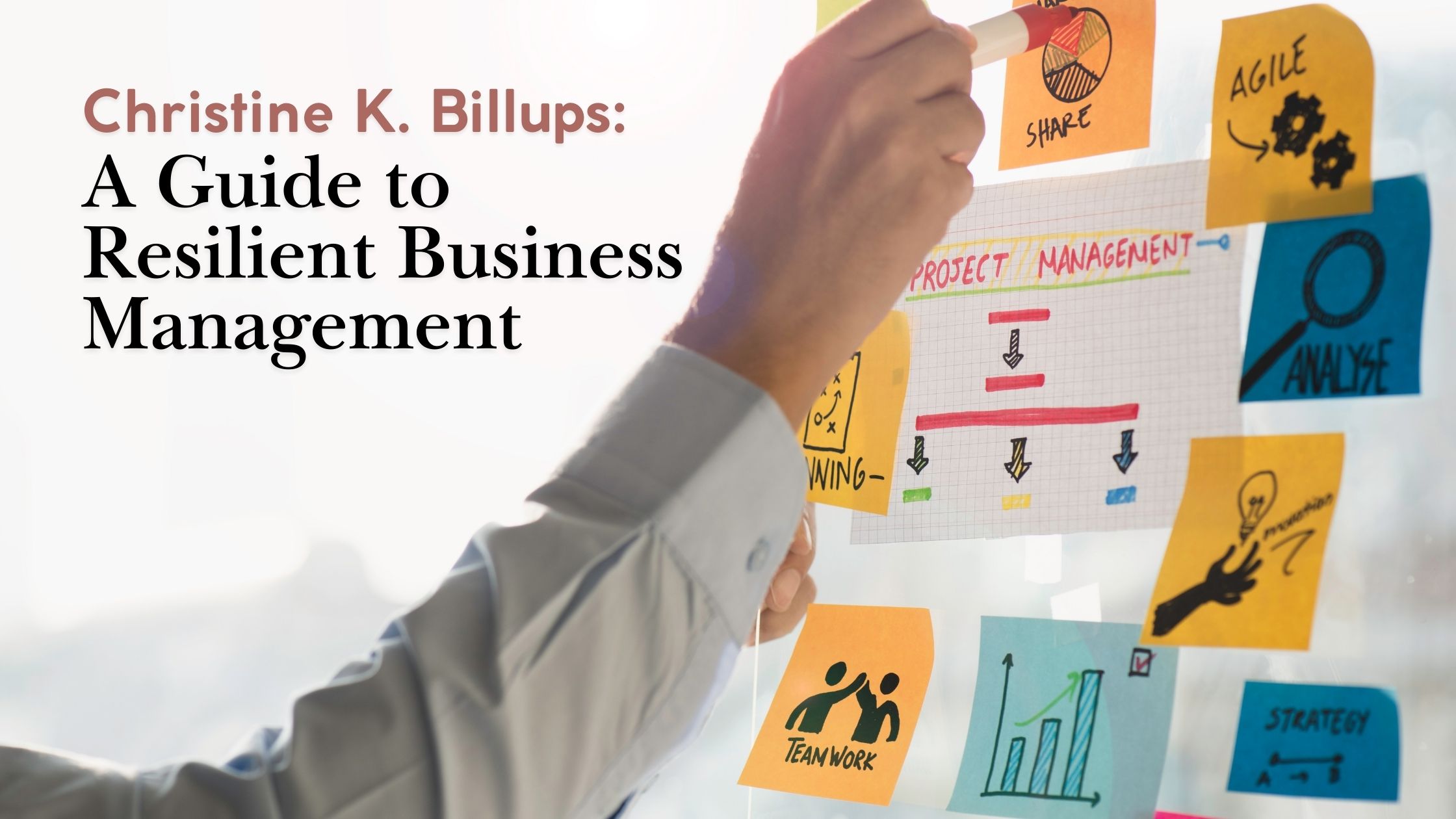Christine K. Billups: A Guide to Resilient Business Management
In today’s fast-paced, unpredictable world, the ability to adapt, endure, and thrive amid challenges is a defining quality for businesses. Christine K. Billups, a respected leader and strategist in business management, has a profound understanding of the strategies needed to build resilience. Her approach emphasizes adaptability, strategic foresight, and an unwavering commitment to growth, providing an invaluable blueprint for navigating the complexities of modern business.
1. Understanding Resilience in Business
Resilience is not merely about bouncing back from adversity; it involves the capacity to pivot, innovate, and make strategic decisions that enable a business to flourish in any environment. Billups defines resilience as a proactive approach where businesses anticipate changes, prepare for challenges, and constantly evolve. In her words, "Resilience in business is about embracing change and leveraging it to strengthen the organization."
2. Building a Resilient Culture
Billups believes that resilience begins with the company culture. A resilient culture fosters adaptability, encourages collaboration, and nurtures an open mindset toward innovation. Leaders are encouraged to cultivate transparency, provide continuous learning opportunities, and engage employees in problem-solving. According to Billups, "Resilient teams are built on trust and flexibility, where everyone is empowered to adapt and contribute toward overcoming challenges."
3. Strategic Agility: Preparing for the Unexpected
One of Billups' cornerstones of resilient business management is strategic agility. This involves not only having a plan but also being prepared to change that plan when circumstances shift. Billups advocates for scenario planning—developing multiple responses to potential risks and changes—and the use of agile methodologies to stay responsive. By doing so, companies can pivot quickly, maintain operational continuity, and seize emerging opportunities.
4. Financial Prudence and Risk Management
Financial resilience is foundational to any organization’s ability to withstand crises. Billups emphasizes the importance of managing cash flow, building emergency reserves, and investing in risk mitigation. She suggests that companies develop a clear understanding of their financial vulnerabilities and engage in proactive risk assessment to identify potential threats. "Financial discipline allows a business to remain stable even when the market fluctuates," says Billups.
5. Customer-Centric Approach
For Billups, a resilient business understands and prioritizes its customers. Building lasting relationships with customers and responding to their evolving needs strengthens customer loyalty, which is crucial during challenging times. By staying attuned to customer feedback, businesses can make necessary adjustments to maintain customer satisfaction and trust, thereby ensuring continuity.
6. Leveraging Technology for Resilience
Technology is a powerful tool for enhancing resilience, allowing businesses to automate tasks, improve decision-making, and increase efficiency. Billups advocates for investment in digital solutions that improve data analysis, communication, and adaptability. She encourages leaders to adopt tools that streamline operations and enhance the customer experience, reinforcing the organization’s resilience.
7. Continuous Learning and Innovation
Billups believes that resilient organizations never stop learning. Encouraging an environment of ongoing education, training, and development allows businesses to stay ahead of industry trends and continually adapt. This commitment to innovation keeps companies relevant and capable of turning challenges into opportunities.
Conclusion
Christine K. Billups’ approach to resilient business management provides a structured guide for modern companies seeking longevity in an ever-changing landscape. Through her insights on adaptability, culture, financial prudence, and technology, businesses can not only survive but thrive, regardless of the challenges they face. Billups reminds us that resilience is not a destination—it’s a continuous journey that requires dedication, innovation, and a willingness to embrace the unknown.




Comments
Post a Comment